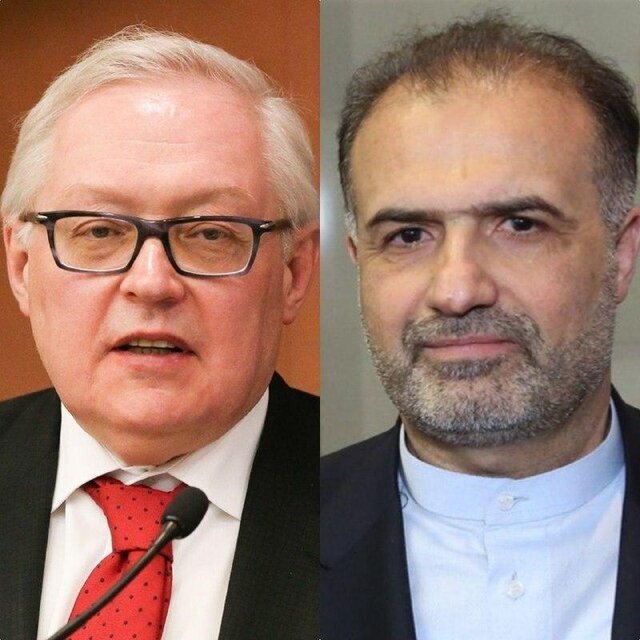TEHRAN - Russian Deputy Foreign Minister Sergei Ryabkov has said that Moscow will continue helping Iran to contain the coronavirus.
“Russia’s help to Iran in fighting the coronavirus will continue. The Russian officials are studying ways to take action in this respect after receiving President Hassan Rouhani’s letter,” Ryabkov told Iran’s Ambassador to Russia Kazem Jalali in a phone conversation on Tuesday.
In a letter to a number of world leaders on Saturday, Rouhani said that fighting the coronavirus requires coordinated actions at the international level.
“No single country can manage this huge and dangerous crisis,” he said.
“No single country can manage this huge and dangerous crisis,” he said.
Rouhani also said it is essential to break and remove the United States’ “cruel sanctions” against Iran and prepare common healthcare protocols among the neighboring countries.
“Management of this huge and dangerous crisis is not possible to be done by one single country, let alone a country that faces many problems in accessing international financial markets and providing its needed commodities,” he said.
‘Moscow to expand cooperation with Tehran through INSTEX’
Ryabkov also said that Moscow has taken actions to lift U.S. sanctions on Iran and makes efforts to expand cooperation with Tehran through the Instrument in Support of Trade Exchanges (INSTEX).
INSTEX has been designed by the European Union to facilitate legitimate trade with Tehran. It was introduced on January 31, 2019, by France, Germany, and Britain, the three European countries party to the nuclear deal.
INSTEX was supposed to be a financial channel and a special mechanism for transferring money in spite of U.S. sanctions on Iran. Its objective was to facilitate Iran's transactions with European companies.
In late November 2019, Belgium, Denmark, Finland, the Netherlands, Norway, and Sweden issued a joint statement announcing becoming shareholders of INSTEX.
“In light of the continuous European support for the agreement and the ongoing efforts to implement the economic part of it and to facilitate legitimate trade between Europe and Iran, we are now in the process of becoming shareholders of the Instrument in Support of Trade Exchanges (INSTEX) subject to completion of national procedures. INSTEX was established by France, Germany and the United Kingdom in January 2019,” read the statement, published by the Foreign Ministry of Finland.
During a meeting with Chairman of the Foreign Affairs Committee of the Russian Federation Council Konstantin Kosachev on March 3, Jalali said that no transaction has been done through INSTEX.
“The Europeans created INSTEX, however, no transaction has been done within the framework of this mechanism up to this moment,” he said.
Iranian Parliament Speaker Ali Larijani said on February 23 that INSTEX is ineffective and useless.
Iranian Parliament Speaker Ali Larijani said on February 23 that INSTEX is ineffective and useless.
Matthew Anthony Evangelista, a U.S. political science professor at Cornel University, has said that the Europeans have been “slow” in implementing INSTEX.
“The Instrument in Support of Trade Exchanges was a European initiative to facilitate trade with Iran despite U.S. sanctions that particularly affected the banking sector. But the Europeans were slow in getting the process going, and they met fierce opposition from the United States, so INSTEX was only established in January 2019,” ILNA quoted him as saying in an interview published late February.
“I think it is difficult for the Europeans to continue trying to support Iran,” Evangelista added.
He also noted, “The situation does not seem fair to Iran.”
On May 8, 2019, exactly one year after President Trump abrogated the JCPOA, Iran said its “strategic patience” is over and started to gradually reduce its commitment to the JCPOA at the bi-monthly interval. Finally, on January 5 Iran took the last and final step in reducing its commitments to the JCPOA.
However, Iran has insisted that it will reverse its decisions if the EU abides by its obligations under the multilateral pact.


No comments:
Post a Comment